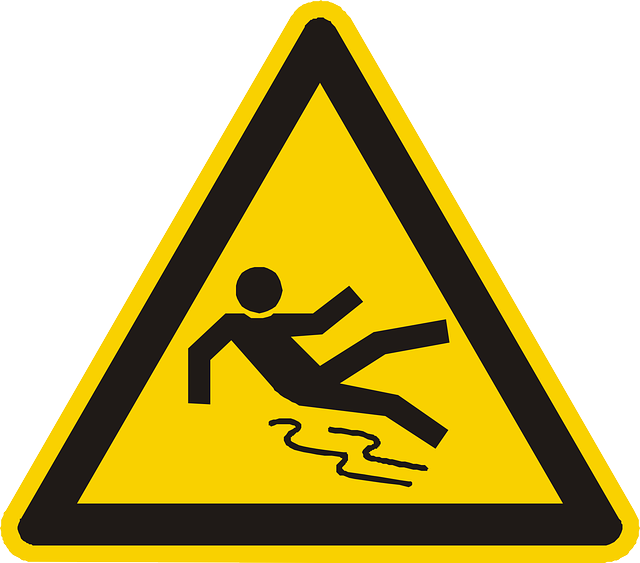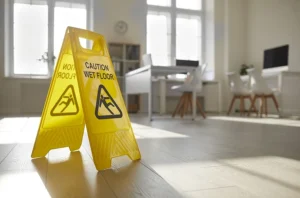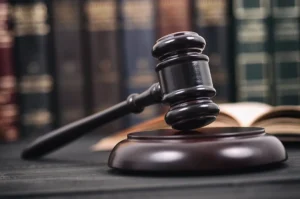Florida Premises Liability Attorneys

In Florida’s bustling spaces, from sunlit malls to serene resorts, there lies an unspoken promise of safety for all who tread there. Yet, when this promise is broken, resulting in accidents or injuries, the path to justice can seem complicaated. With Weston & Pape by your side, this path becomes clear, guided by expertise and unwavering commitment. If you need a premises liability lawyer, we’re here to assist, contact us by calling 407-537-6991 for a free consultation.
How a Premises Liability Lawyer Can Help in Florida
When you step onto someone else’s property, be it a store, office, or even a friend’s home, there’s an implicit trust that you’re in a safe environment. However, when property owners fail to maintain this safety, resulting in accidents or injuries, the fallout can be both physically and emotionally draining. In Florida, premises liability law covers these situations, ensuring that injured parties have a route to justice. If you find yourself in such an unfortunate situation, here’s how a premises liability lawyer can be an invaluable ally.
Deciphering Complex Laws
Florida’s premises liability laws are complex and can be difficult to navigate without legal guidance. The legal definition of what constitutes a “hazard” is not always straightforward and often depends on the specific circumstances of each case. For example, a wet floor may be considered hazardous in one setting but not in another, depending on whether there were warning signs, how long the condition existed, and whether the property owner had sufficient time to address the issue.
Additionally, property owners have different obligations based on the legal classification of the visitor—whether they are an invitee, licensee, or trespasser. Each category comes with its own set of rights and protections, which can significantly influence the outcome of a claim. For instance, business owners owe the highest duty of care to invitees, such as customers, requiring them to routinely inspect and maintain their premises for potential dangers. In contrast, a lower standard of care is owed to trespassers, although exceptions exist—especially when children are involved.
Understanding these nuances is critical, and that’s where a specialized premises liability attorney becomes indispensable. An experienced lawyer will help you interpret the law as it applies to your unique situation, explain the legal obligations of the property owner, and assess whether those obligations were breached. They will also help you determine if there are any comparative fault issues—where your own actions may be scrutinized—and what impact that may have on your ability to recover damages. In short, a skilled attorney provides the legal clarity and strategic insight necessary to pursue your claim effectively and confidently.
Establishing Negligence
For a premises liability claim to be successful, one must prove the property owner’s negligence. This requires demonstrating that the owner knew (or should have known) about the dangerous condition and failed to address it. An experienced attorney will gather the necessary evidence, be it maintenance records, CCTV footage, or eyewitness accounts, to establish this negligence.
Evaluating Damages
After an accident, quantifying the damage is not just about medical bills. There are other considerations, like lost wages, future medical expenses, and emotional trauma. A premises liability lawyer ensures that all potential damages are accounted for, ensuring you seek a comprehensive compensation package.
Negotiating Settlements
While many cases might seem straightforward, insurance companies often deploy tactics to minimize payouts. With a seasoned lawyer, you’ll have someone to counter these tactics, negotiate on your behalf, and strive for a settlement that genuinely reflects your suffering.
Representing in Court
If negotiations break down, your case might end up in court. Here, your attorney will be indispensable, representing your interests, presenting evidence, and arguing your case to ensure a fair verdict.
Ongoing Guidance and Support
Beyond the legalities, a premises liability accident can be emotionally taxing. Having a lawyer ensures you have ongoing guidance, from handling communication with insurance companies to offering emotional support during tough moments.
Staying Updated on Changing Laws
Laws and regulations are continually evolving. A dedicated premises liability lawyer remains updated on any changes, ensuring your case is always in line with the latest legal standards.
The aftermath of an accident on someone else’s property can be a whirlwind of medical visits, insurance calls, and stress. However, with the right legal partner, the journey becomes less daunting. If you or a loved one have experienced such an incident in Florida, remember that there are experts ready to champion your cause, ensuring your rights are upheld and justice is served.
Understanding How Long Your Claim May Take
Contact a Florida Premises Liability Attorney Today
Amid the intricacies of premises liability claims in Florida lies a beacon of hope for those seeking justice. Weston & Pape stands as that beacon, shining a light on the complex legal pathways, ensuring your journey towards compensation is as smooth as possible. While the pain of an accident can be overwhelming, with the right legal partner, every challenge can be surmounted. Reach out to us for a free consultation 407-537-6991, and let’s walk the road to justice together.



 Call Us Today - It's Free
Call Us Today - It's Free